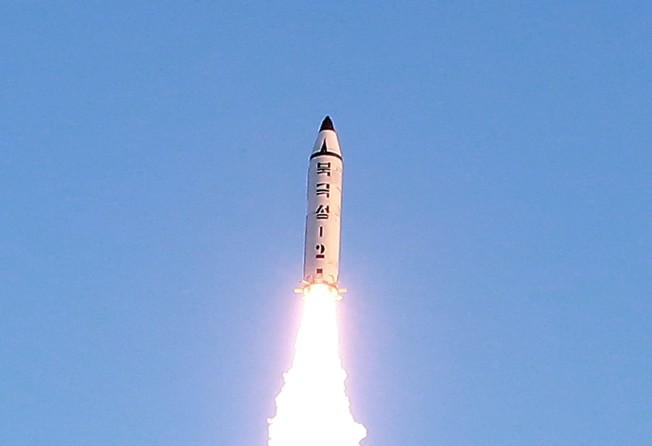Improved regional ties the key to dealing with the North Korean threat
A rapprochement between China and South Korea is a good start towards creating the climate necessary for bringing Pyongyang to heel

North Korea will not be convinced to end its provocative ways if the governments trying to stop its nuclear and missile programmes have difficult relations. China and South Korea realise that, which is why efforts are being made to repair ties. A fence-mending visit to Beijing by a special envoy for the South’s new president, Moon Jae-in, has set the right tone, and some informal Chinese economic sanctions have already been lifted. It is a hopeful beginning, although ending the thaw greatly depends on how Moon handles daunting domestic and international challenges.
For China, as with Russia, good relations require the scrapping of a missile defence shield being built on South Korean soil by the US to defend against the North’s threats. North Korea has successfully launched two missiles since Moon took office on May 10 and another nuclear test is anticipated. Beijing and Moscow claim the US system’s radar capabilities are so powerful that Washington will be able to spy on them. Moon has suggested that although the shield is already under construction, its operation is not a foregone conclusion and it could be replaced by a weaker, mostly indigenous system.
Such remarks and the visit by the envoy, Lee Hei-chan, have given Beijing cause to encourage Moon. Visits to South Korea by Chinese tour groups, cut off with the souring of relations, are expected to resume soon. But the president cannot order the removal of the missile defence system without first convincing South Koreans that there are better ways to prevent possible strikes, and persuading the US that its troops stationed in the country will be safe. The struggle between China and the US is only one of many difficulties Moon faces: even more pressing are the mounting social and economic challenges that won him the presidency. The North’s weapons proliferation makes national security of equal importance.
Moon’s election ended six months of political and diplomatic stagnation brought about by corruption allegations against his predecessor, Park Geun-hye, and her subsequent impeachment. South Koreans voted for change and Moon offers that after two terms of conservative rule. He is a firm advocate of diplomacy and he offers a return to talks with the North rather than previous governments’ policies of sanctions and defence. The appointment of special envoys to nations instrumental in bringing Pyongyang to heel, China and the US among them, augurs well.
But it will be a delicate balancing act and other governments have to be mindful of the pressures Moon faces. Unlike other new leaders, he does not have a honeymoon period. Improved relations between the other countries in the region will be key to dealing effectively with the threat posed by North Korea.